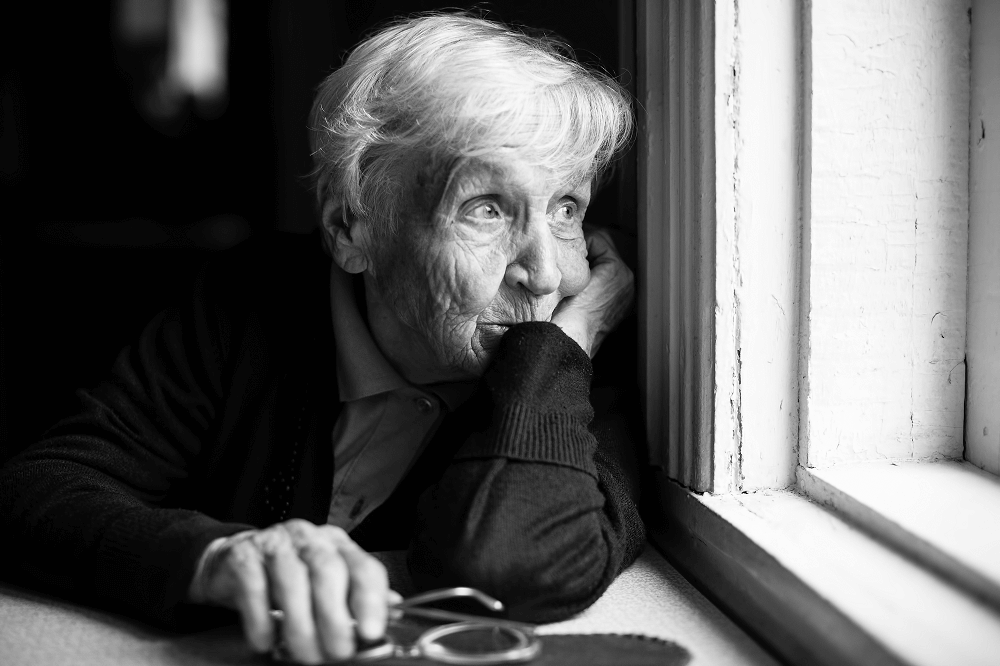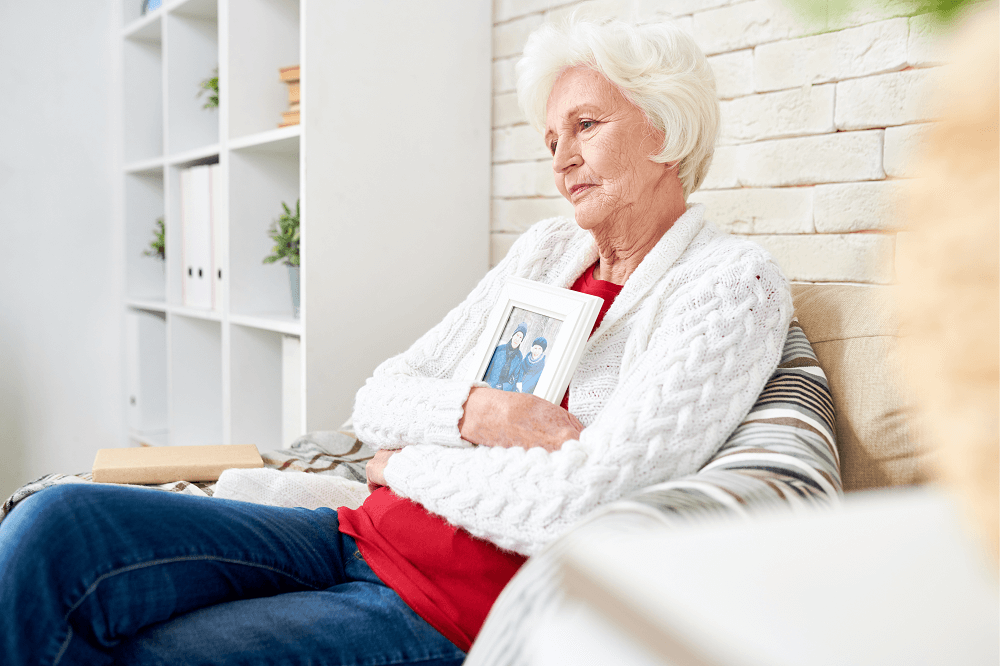How To Combat Loneliness and Isolation In Elderly People

As a person ages, their lives change and some of the freedoms of their old lifestyles are no longer accessible for them. Unfortunately, feelings of loneliness and isolation are common for the Australian elderly population. This can be amplified if the individual suffers from dementia or other age-related diseases.
If a person is feeling prolonged feelings of isolation, they are at risk of suffering from a decline in mental health, and depression. In elderly people, it can also potentially increase their risk of heart disease and an earlier mortality rate.
Risk factors for loneliness and isolation

Loss of a loved one
Often, an elderly person transitions into an aged care home after their spouse or primary caregiver passes away. Without adequate support during the transition period, or ongoing support during the grieving process, a person may withdraw from others and their surroundings and experience intense feelings of depression and loneliness.
Life transitions
As a person ages, it may start to become more and more difficult for them to live independently. They may lose the ability to look after themselves properly, and require additional support and/or services. The benefit of transitioning into an aged care home, is that the individual’s basic needs and health will be monitored more closely. However, it is not to expect that this transition will be easy for the individual, especially as it involves leaving their old lifestyle behind.
Adjusting to pandemic-related changes
The COVID-19 pandemic has been difficult for everyone, but it can be particularly tough on the elderly population. Not only are they more vulnerable health wise, but added socialisation limitations and travel restrictions may be both upsetting and confusing, particularly for those with memory affected conditions such as dementia.
Strategies to combat isolation and loneliness

For family members, loved ones and health care workers alike, if you are concerned that an elderly person you know is battling with these difficult emotions — here are some strategies to help.
Determine an appropriate level of socialisation
Every single person has different socialisation needs. Some people are more extraverted and enjoy being around people most of the time, and others are more introverted and prefer their alone time. Regardless, all people require human contact in order for them to feel part of a wider community and less isolated overall.
It is important to take note that energy levels often decrease as people age. An elderly person may fatigue more quickly, and may not have the stamina for extensive social activities. This is why it is important to work with the individual to understand what their own personal needs are and how much socialisation they require.
- Schedule in regular visits. Having a friend or family member come into visit can be a huge highlight. It is a great opportunity to engage in conversation and catch up on life’s events. It is also crucial to maintaining good social bonds. A home care support worker can also visit a person within their home to provide basic support services.
- Engage in social activities. Most nursing homes have great activity programs available for residents. They allow the residents to socialise with others in a similar situation to themselves, explore their interests, and sometimes spend time outside of the nursing home itself. Activity participation helps build social networks and maintain social connections. Each resident may have varying capacities to how many activities they wish to participate in on a weekly basis, but at St Jude’s there is an option available for everyone. Check out some of our regular activities here.
For those still living at home and receiving home care, regular outings and participation in community activities and events can do wonders for an elderly person’s mental health.
Explore their unique hobbies and interests

Every resident has a story, and has topics or hobbies which make them tick. Take the time to understand these things. Not only will the person feel heard and understood, it will give you some pointers on conversation topics or activities you can implement to engage that person. Some great questions to ask are:
- What was your career/what did you do for work?
- What are some of your favourite musicians?
- Did you play a sport when you were younger?
- What are some of your favourite books and films?
- What are some of your favourite foods you like to eat?
Whether you are a family member, or a health care worker who cares for the person, by showing a genuine interest in the resident, they may begin to open up to you more. Most importantly, this feeling of being listened to works as an antidote for feelings of loneliness.
Keep connected with modern technology
If a person’s family or friends live further away and are unable to visit them in person, technology is a great way to keep in touch. Mobile phones to chat, and Skype and Zoom to video call are fantastic ways for a person to stay connected, which in turn will help minimise their sense of isolation.
For seniors living with conditions such as dementia, there are technologies available — such as the KISA phone — which are simplified for ease of use.
Residential aged care at St. Jude’s

Here at St Jude’s we understand that the transition into an aged care facility is an adjustment. We aim to make this transition as smooth as possible. We are committed to meeting the unique needs of every resident and continuously provide them with the support that they need to live comfortably and happily.
We are aware of the loneliness epidemic faced by some of our elderly community, and aim to tackle this head on. We have a community based activity program which we encourage our residents to take part in — however residents are free to engage as much or as little as they like. We provide hands-on and empathetic aged care home support, to facilitate an environment that is warm, welcoming and stimulating.
Home care services by St Jude’s

If an individual wishes to remain in their own home, but does require additional in-home support services, St Jude’s has a dedicated aged care home support team. We understand that there is no ‘one size fits all’ approach to aged care, therefore this option is fantastic for those who have capacity to live independently, but need additional support.
St Jude’s home care support offers the following services:
- Cleaning
- Cooking
- Gardening
- Mobility assistance
- Personal hygiene care
- Medication management
- Physiotherapy
A St Jude’s support worker will also adopt a companionship role and spend fixed time with the elderly person. This is usually between 4-9 hours on a daily or weekly basis depending on the needs of the elderly person, and what is outlined in their aged care plan.
If you would like to find out more about residential aged care or aged home care services at St Jude’s get in touch with us today.
|
|


